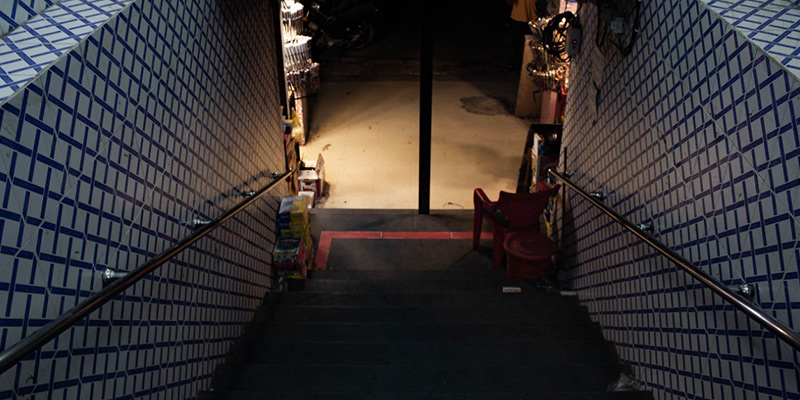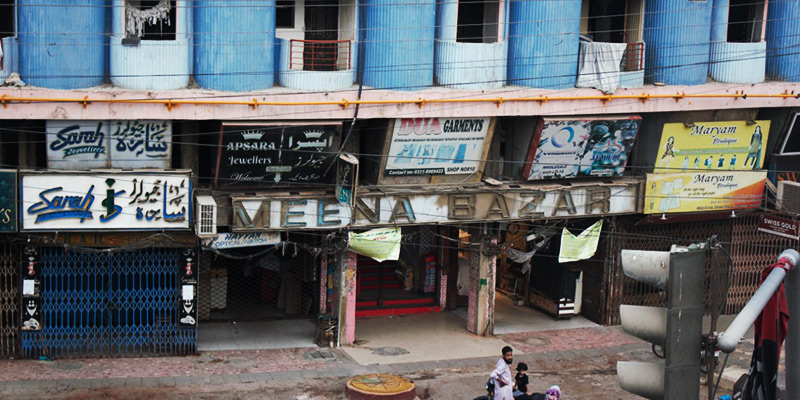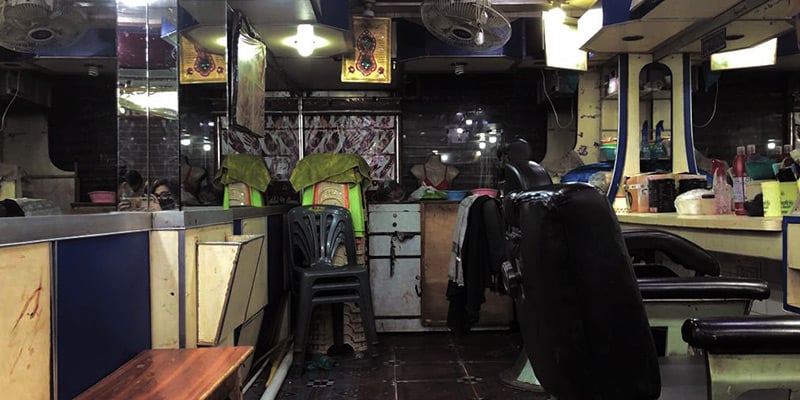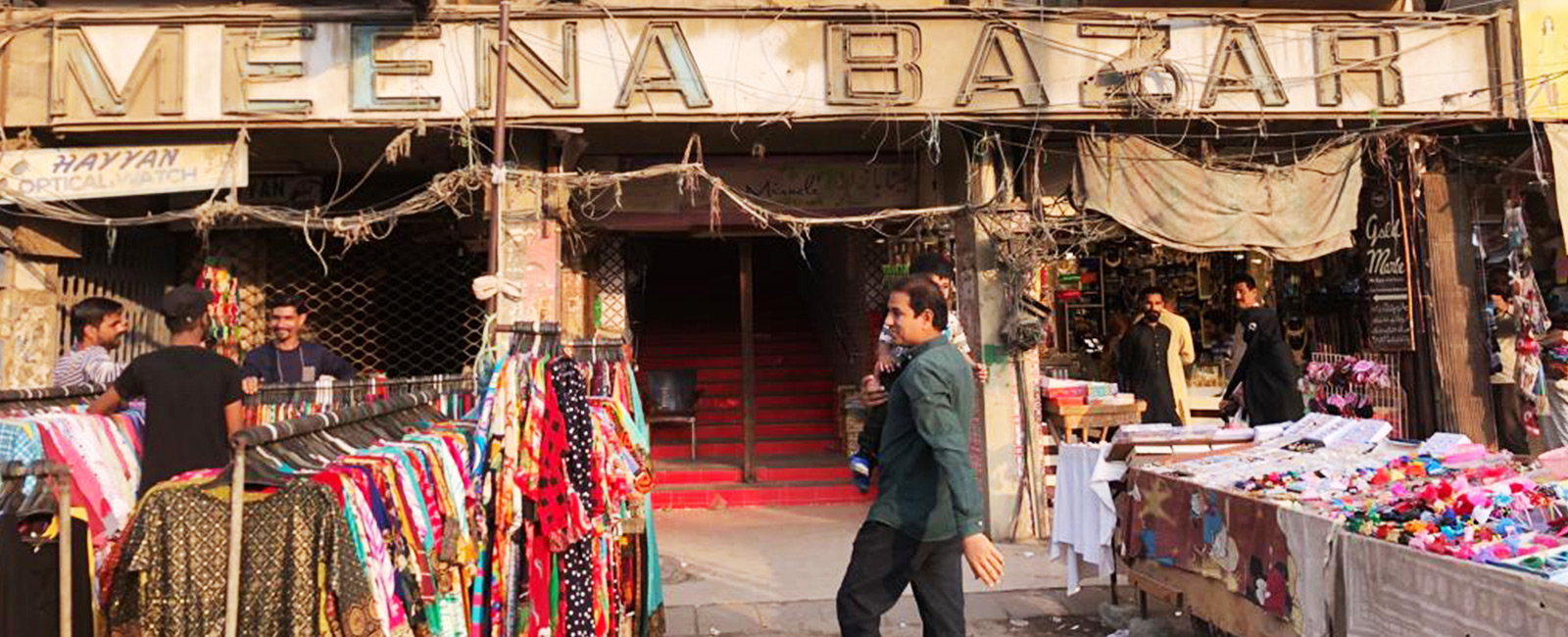Karachi's Meena Bazaar: A symbol of empowerment for women micro-entrepreneurs

Karachi is not just a city of life. It is a city of colours, light, and hope too. The warmth it offers to its people is unmatched and there is no way one can’t find a reason to stay here. Long before the air-conditioned malls and brands, the bazaars in Karachi were the real deal.
Meena Bazaar, situated in Karimabad, is one of the oldest such bazaars in the city. The name is inspired by the special Mughal Era events, organised during the festival of Navroz —the Persian new year which fell on the first day of the Spring Equinox, usually March 21. Navroz comes in the Persian month of Favardin. Under the Mughals, this festival was celebrated for 19 days with the first and last day being considered auspicious.
Those Meena Bazaars were set up by women for women and no men were allowed to attend them except for the rulers of the time. The heritage continues to date for which space is set up where everything from traditional bangles to delicate jhumkas (ear pendants) and radiant dupattas (long head scarfs) is available.
However, what sets apart this market from others in Karachi is a portion solely dedicated to women micro-entrepreneurs. As the world is transforming into a global village, entrepreneurship is a word that is thrown a lot up into the air without its meaning being realised truly. But this bazaar is a living example of how women with almost no privilege can become successful entrepreneurs only driven by their raw dedication. They are micro-entrepreneurs with macro business drives.
As you enter the bazaar, taking a few steps ahead will lead to multiple staircases from where you can go to the upper portion which is a ‘no-man-zone’ since only women are allowed to shop and sell there. The absolute chaos of multiple businesswomen trying to lure you into buying their services by hawking ‘Idhar aajeyen baaji’ will remind you of the hustle and bustle of the city. As you walk around that portion, you will experience the true essence of women's empowerment.

With nearly 45 functional shops around the floor, services like henna, personal hygiene, women's sanitary products, and grooming can be availed. Special discounts on bridal services are also offered and no matter what time of the day you go to go there, the market is always full of women getting their henna (tattooing) done or shopping for personal accessories.
“I was 16 years old when I first came here. I only knew how to draw flowers on my hands and that’s what I did when I held the mehndi cone in my hand for the first time. Now I am married and a mother of two, and I know how draw every type of mehandi (henna) design. Aankhen band karke laga sakti hoon (can do it with my eyes closed),” Samreen, 32, laughed as she talked to Geo.tv.
As I wandered around, I had a question lurking in my mind. It was about how these women handle harassment all on their own. With a male-dominant market downstairs, there is a chance that they might get catcalled or accosted on their way to work.
“So far, there have been no serious cases. However, there was this one time when some men from the main market tried to persuade our vendors into selling their products to them and destroy our business. When we tried to protest, they harassed us but saari larkiyan ikathi hokar un per bhaari par gaein (all girls united and outweighed them). So, our unity always saves us from unfortunate incidents,’” said Suriya, 60, who seemed to be the oldest member of the clan.
“I have spent all my life here, and I know how it feels like to look for work when you have no degree or education in hand, so whenever someone comes here looking for work, I make sure to find a space for them.”

Some women have been abandoned by their families and they are employed by the business owners in the bazaar who also sometimes financially support them until they become independent. Since those women were hesitant in revealing their identities, Geo News talked to Ashfaaq Sahab, commonly known as Jummah Bhai, who is the proprietor of the bazaar and deals with business matters of women who run their shops there.
“Safety of women working here is our top priority. We have been working hard to keep them safe and also provide them with a space that is solely owned by them. Furthermore, I come here from 4pm to 7pm every day so that I can overlook the matters of the market and also listen to any sort of difficulties women have deal with,” Ashfaaq sahab told Geo.tv.
“Whoever comes here in search of work, we make sure to find adjustment. If they have no skills, we first place them for training and then eventually, offer them a job,” he further added.

Whoever is fortunate enough to pay a visit to this bazaar rich with heritage and culture, this particular part will remind them of the strength and empowerment that members of the fair sex hold within themselves. These women have stories to tell under a roof that is both a workplace and home to them. This place gives them solace and hopes to face the world with strength and dignity.
Meena Bazaar is indeed a place that boldly symbolises women’s powerful resistance not only to patriarchy but also to an unfolding world that is yet to catch up with evolution in gender equality.
The writer is a staff member




